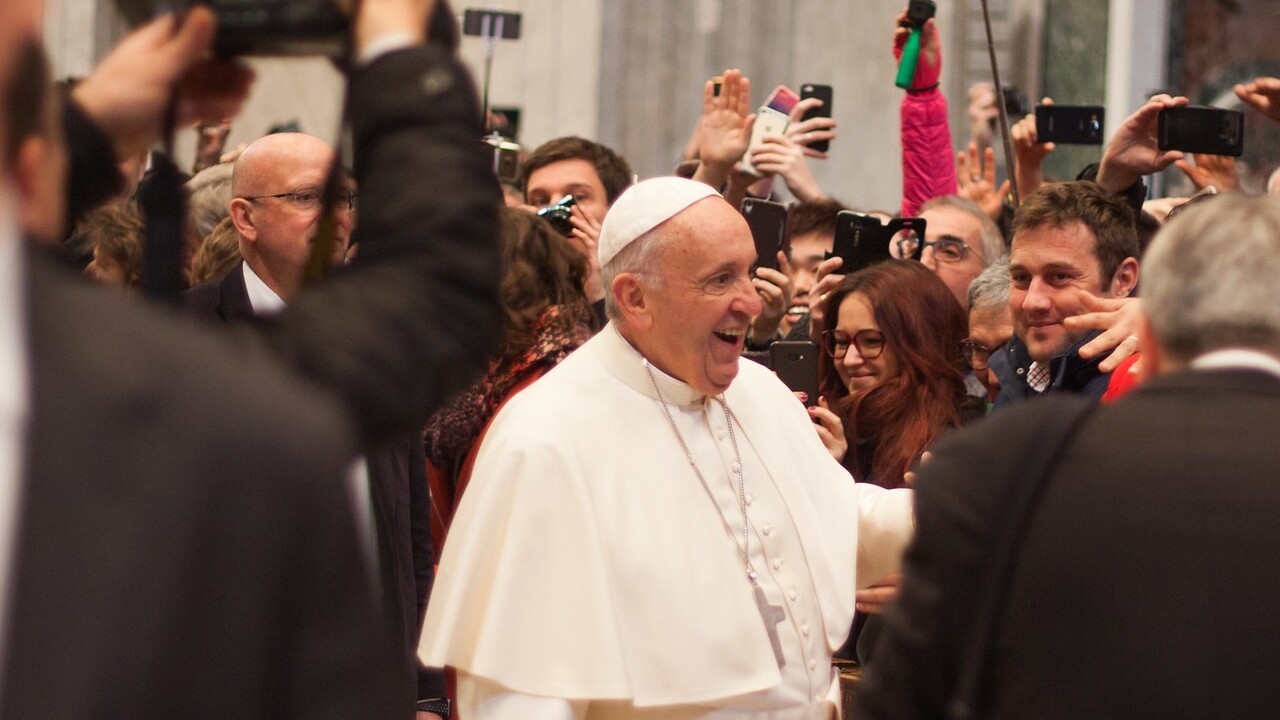Historically, religious leaders have been adamantly opposed to socialism for many reasons, namely because socialist systems disdain the existence of a higher power, reject individual liberty, and are antithetical to human nature.
For instance, Pope John Paul II, who was born in pre-communist Poland, played an instrumental role in the downfall of the Soviet Union. In 1989, two years before the collapse of the USSR, Pope John Paul II met with Soviet leader Mikhail Gorbachev at the Vatican, pleading the case for freedom in the communist bloc.
Shortly thereafter, Gorbachev stated, “The collapse of the Iron Curtain would have been impossible without John Paul II.”
In 1991, the year the Soviet Union collapsed, Pope John Paul II issued his encyclical, in which he wrote:
“…the fundamental error of socialism is anthropological in nature. Socialism considers the individual person simply as an element, a molecule within the social organism, so that the good of the individual is completely subordinated to the functioning of the socio-economic mechanism. Socialism likewise maintains that the good of the individual is completely subordinated to the functioning of the socio-economic mechanism. Socialism likewise maintains that the good of the individual can be realized without reference to his free choice, to the unique and exclusive responsibility which he exercises in the face of good or evil. Man is thus reduced to a series of social relationships, and the concept of the person as the autonomous subject of moral decisions disappears, the very subject whose decisions build the social order.”
In 2004, President George W. Bush echoed Gorbachev’s statement when he awarded Pope John Paul II the Presidential Medal of Freedom, exclaiming, his “principled stand for peace and freedom has inspired millions and helped to topple communism and tyranny.”
That was then. This is now.
The current leader of the Catholic Church, Pope Francis, has apparently disavowed Pope John Paul II’s anti-Marxist beliefs, marking a severe change in the Vatican’s official stance on socialism.
Consider Pope Francis’ recent comments when meeting with Italy’s revenue agency.
According to Pope Francis, “[Taxation] must favor the redistribution of wealth, safeguarding the dignity of the poor and the least, who always risk being trodden underfoot by the powerful. The taxman, when he or she is just, promotes the common good.”
Pope Francis continued, “Transparency in the management of money, which comes from the sacrifices of many workers, reveals freedom of spirit, and teaches people to be more motivated in paying their taxes, especially if fiscal revenue contributes to overcoming inequality, making investments to create jobs, guaranteeing good healthcare and schooling, and creating infrastructure that facilitates social and economic life.”
Although Pope Francis is not calling for the resurgence of communist governments, he is advocating for the very principles, such as wealth redistribution, that underpin socialism.
Even worse, Pope Francis has a history of kowtowing to socialist regimes. In 2015, he visited communist Cuba, yet failed to call out the Castro regime for its brutal human rights abuses. In 2017, Venezuelan dictator Nicholas Maduro claimed he had the support of Pope Francis, after Francis visited Venezuela and failed to decry Maduro’s reprehensible regime. In 2019, Francis traveled to Hong Kong, but not to draw attention to the human rights violations at the hands of the Chinese Communist Party. In fact, while in Hong Kong, Pope Francis was quoted as saying, “I love China.”
Sadly, less than 30 years after Pope John Paul II played an integral role in the dissolution of the Soviet Union, Pope Francis seems to sympathize with socialist leaders.
Perhaps Pope Francis should reread Pope John Paul II’s encyclical from 1991, in which he wrote:
“Marxism criticized capitalist bourgeois societies, blaming them for the commercialization and alienation of human existence. This rebuke is of course based on a mistaken and inadequate idea of alienation, derived solely from the sphere of relationships of production and ownership, that is, giving them a materialistic foundation and moreover denying the legitimacy and positive value of market relationships even in their own sphere. Marxism thus ends up by affirming that only in a collective society can alienation be eliminated. However, the historical experience of socialist countries has sadly demonstrated that collectivism does not do away with alienation but rather increases it, adding to it a lack of basic necessities and economic inefficiency.”
Chris Talgo (CTalgo@heartland.org) is the editorial director and a research fellow at The Heartland Institute, as well as a researcher and contributing editor at StoppingSocialism.com.






